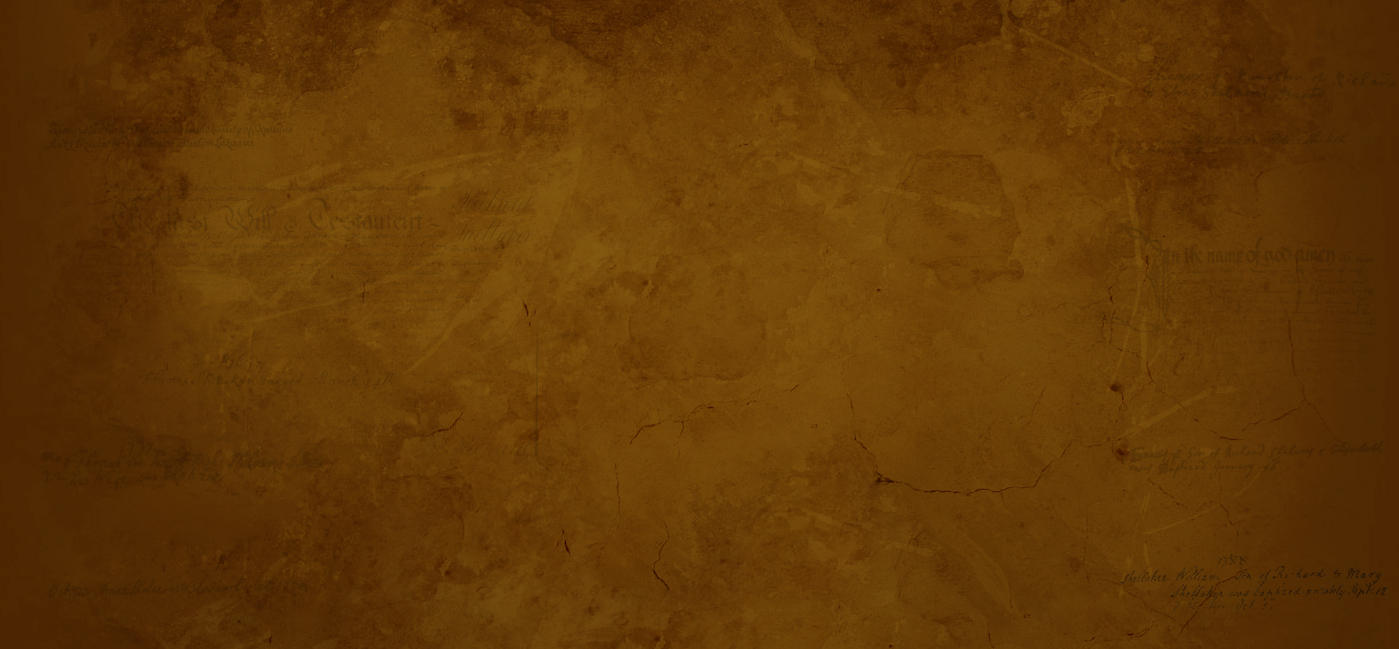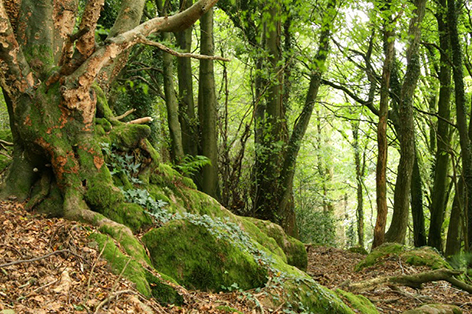

This option is more interesting….
 Features of the landscape and local area are the very common origins of surnames, for example, there are very many names derived from a hill. In addition to the obvious Hill and Hills there are also Hull, Athill, Holt, Wold, Noll, Knollys, Knolles, Ness, Thill and Knill. A family surname of Hill could originate simply from a man who lived many centuries ago on a hill and he may have become known as ‘Richard from the Hill’, or ‘Richard on the Hill’ or ‘Richard of the Hill’, which over time becomes shorten to ‘Richard Hill’. Similarly there are surnames connected with a Wood – these include Woods, Greenwood, Woodman, Woodruffe, Woodcutter and Attwood.
Features of the landscape and local area are the very common origins of surnames, for example, there are very many names derived from a hill. In addition to the obvious Hill and Hills there are also Hull, Athill, Holt, Wold, Noll, Knollys, Knolles, Ness, Thill and Knill. A family surname of Hill could originate simply from a man who lived many centuries ago on a hill and he may have become known as ‘Richard from the Hill’, or ‘Richard on the Hill’ or ‘Richard of the Hill’, which over time becomes shorten to ‘Richard Hill’. Similarly there are surnames connected with a Wood – these include Woods, Greenwood, Woodman, Woodruffe, Woodcutter and Attwood.
Many surnames have their origins from rivers and streams and many are local names, which without local knowledge would be difficult to identify. These include Surtees (on the Tees), Pickersgill (a stream with a pike in it), Hope and Holm (raised land in a fen), Fleet (estuary or stream), Burn and Bourne (a stream) and Sike and Sykes (a marshy stream).
Some surnames of this type are relatively obscure – the surnames of ‘Cheynes‘ and ‘Chenies‘ come from the French word for oak, un chène.
So it is clear that not all these type of surnames are immediately obvious.
Could ‘Shellaker‘, ‘Shelacres‘ or any of its other derivatives, be a Surname originating from GEOGRAPHICAL FEATURE OF THE LANDSCAPE?
I believe this is very feasible due to the ‘acres’ / ‘aker’ part of the current name. The word ‘acre‘, as I’m sure you are aware, is a unit of imperial measurement for an area of land.
The measurement was defined during the reign of Edward I (1272-1307) and was considered to be the area that a yoke of oxen could plough in a day. The Acre is derived from the Latin word for field – ager, agri. The measurement is defined as area of 1 chain by 1 furlong, with a furlong being the standard length of a furrow in a ploughed field (‘furrow long’ becomes furlong). A furlong was supposedly the distance that a horse could pull a plough before needing to rest. An acre is one square furlong.
The dictionary definition and orgin of the word ‘acre’.
acre
before 1000; Middle English aker, Old English æcer; cognate with Old Frisian ekker, Old Saxon akkar, Old High German ackar (German Acker),Old Norse akr, Gothic akers, Latin ager.
O.E. æcer “tilled field, open land,” from P.Gmc. *akraz “field, pasture” (cf. O.N. akr, O.Fris. ekkr, O.H.G. achar), from PIE *agros “field” (cf. L. ager “field, land,” Gk. agros, Skt. ajras “plain, open country”). Originally in Eng. without reference to dimension; in late O.E. the amount of land a yoke of oxen could plow in a day, afterward defined by statute to a piece 40 poles by 4, or an equivalent shape (5 Edw. I, 31 Edw. III, 24 Hen. VIII).
This definition is interesting as the some various forms of ‘acre‘ are in different derivations of the end part of the surname; e.g.Shellaker, Shelakers.,Shelacre.
It is also interesting, and maybe relevant, that the word ‘acre‘ and its various forms, is a pre-conquest (1066) word, which has etymological roots in geographical areas from where the post-Romano invaders of the Britain originated; the Germanic areas of Saxony & Old Frisian and Scandinavia – Old Norse. Historically these areas are the locations from where the Saxons and Norseman (later known as Vikings) originated.
The ‘Shell‘ part of the surname is arguably more ambiguous. I think it would be native of us to believe the surname was originally a literal translation of a ‘field (acre) in which shells were found’. If our surname was derived from geographical feature of the landscape then other meanings of the ‘Shell‘ or indeed ‘Shill‘ should be considered. If you say this two prefixes aloud, you will hear they are very different.
I have read online of a theory that the ‘Shellaker/Shillaker’ surname could have originated from the elements shill- (OE scylf, shelf) or shell- (OE sceolh, twisted) combined with -acre (field).
The internet also mentions a possible Scandinavian tribe which contains ‘scylf’ these are the Scilfings (Scylfingas)’ who are also mentioned in Beowulf. It is thought their name must be derived from a hero Scelf or Scylf. The word ‘Scylf’ is from Old Norse word ‘skelfa’ which means ‘to strike with fear’. Shelley in Suffolk (in Ang. Sax. Scelfleah) and Shelton in Beds. (in Ang. Sax. Scelfdun) are probably formed from the name Scelf. Hence as local names come Shelley and Sheldon in Devon (from scylf ‘shelf’ + denu ‘valley’).
My conclusions……not sure. It is possible the name ‘Shellaker/Shillaker’ did derive from a geographical feature of the landscape but possibly from a village named after that geographical feature and not an individual person. However I will refer to that possibility shortly.
Next Page: Other options are considered